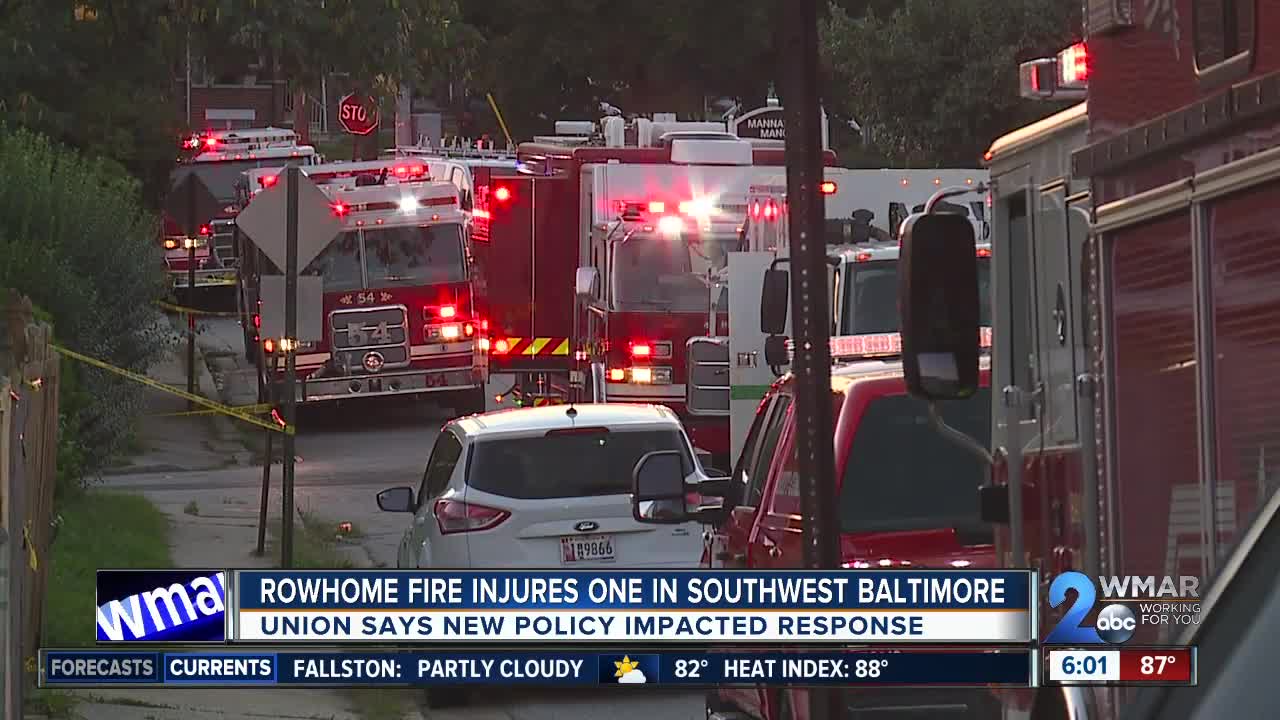BALTIMORE (WMAR) — The Baltimore City Fire Department's controversial new reduced fire response policy went into effect Sunday, and it's already receiving criticism from the local firefighter's union.
In a statement issued Sunday evening, IAFF Local 734 President Richard Altieri II, alleged the new policy had already jeopardized the life of a citizen, when a fire broke out at a home in the 2200 block of Booth Street. The union urged city residents to contact their councilman to have the policy changed.
This evening, there was an incident involving our latest Reduced Response Policy. Today was the first day this policy has taken affect, and already it has jeopardized the life of a citizen. The 911 caller confirmed that there was a citizen inside the reported address who was trapped. Despite this, a “Local Alarm” was dispatched resulting in two less engines, one less truck, and one less Battalion Chief. This dangerous practice resulted in 17 firefighters on the initial response rather than 30, which was the previous standard. Units arrived to find an occupant trapped in the burning building needing to be rescued. Our firefighters made entry into the structure without having the proper resources in place due to this new policy. Incidents involving entrapment requires additional personnel to facilitate rescuing victims, putting out the fire, and to provide emergency medical care. There is also a need to have more units on scene to provide backup for the safety of our firefighters. The civilian involved was severely injured, however is still alive due to the heroic efforts of the men and women of the Baltimore City Fire Department. Our excellent firefighters, paramedics, EMT's and our dispatchers will always be there for the citizens. This Local has opposed this policy vehemently since its inception. We will continue to advocate for our residents and members to ensure the safety of everyone is maintained. We hope that the Fire Department Administration will see that despite less than 24 hours into this new policy in effect, it has already demonstrated that this new policy is a dangerous practice and needs to stop now.
Prior to the policy, fire engines and ambulances shared the duty of responding to calls, but as demand for emergency medical responses have drastically grown in recent years, Chief Niles Ford wanted to address the issue by cutting back on the number of fire trucks responding to fires.
RELATED: Fewer engines to answer fire calls in Baltimore
The union pushed back on the policy shift, saying it would put both firefighters and the public at risk.
Ford says the policy does not stop units arriving on scene first from calling for more assistance if they think it's needed.
Earlier this year the Union also expressed their anger when the department temporarily shut down some engines to answer medical calls.
READ MORE: Baltimore fire engines being shut down temporarily to assist with emergency medical calls
Union leaders say under the new policy, 17 personnel will be dispatched to a fire instead of the 30 who used to respond.




